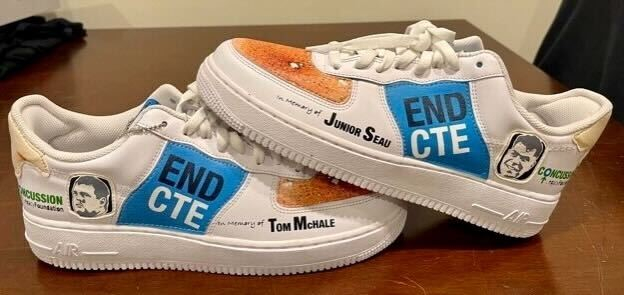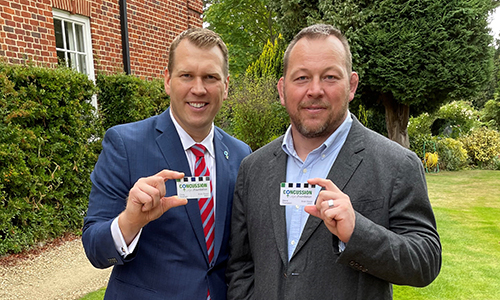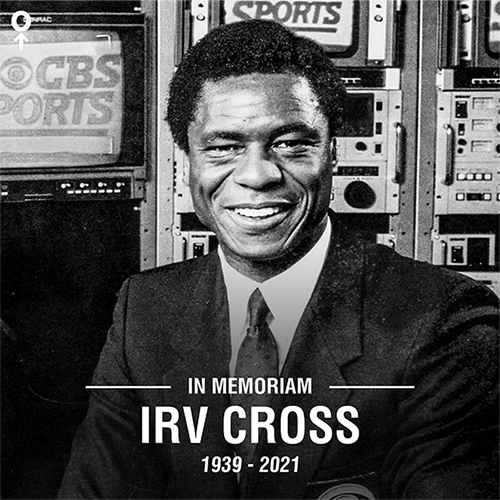Adams, 32, died by suicide during a standoff with police in Rock Hill, South Carolina
(Boston) – Neuropathologists at the Boston University CTE Center have found that former NFL player Phillip Adams had stage 2 chronic traumatic encephalopathy (CTE). Adams died by suicide at age 32 in April 2021 after fatally shooting six people in Rock Hill, SC.
York County, SC, coroner Sabrina Gast facilitated the brain donation to the VA-BU-CLF Brain Bank and BU CTE researchers conducted a post-mortem study of his brain. CLF is releasing the findings upon request from the Adams family, who hope going public with the diagnosis will prevent other families from experiencing similar tragedies.
“As we process these results, we are deeply saddened by the events that occurred on April 7 and we continue to pray for the families of the victims,” the family of Phillip Adams said in a statement. “We are pleased to have a better understanding of the mental turmoil that Phillip was dealing with during the last moments of his life. We cannot say that we are surprised by these results, however it is shocking to hear how severe his condition was.”
CTE is a progressive degenerative brain disease caused by repetitive head trauma, and CTE stage is most closely associated with age of death. Most football players diagnosed with CTE in their 30s have stage 2 CTE. Stage 4 is the most severe stage and is usually associated with dementia.
CTE has been associated with behavioral symptoms like aggression, impulsivity, explosivity, depression, anxiety, paranoia, and suicidal ideation, along with progressive cognitive symptoms.
“Phillip Adams had an extraordinary amount of CTE pathology in the frontal lobe, the area of the brain behind the forehead. Frontal lobe damage is associated with violent, impulsive or explosive behavior, a “short fuse,” and lack of self-control,” said Dr. Ann McKee, chief of neuropathology for the VA Boston Healthcare System and director of the BU CTE Center and VA-BU-CLF Brain Bank. “His CTE pathology might have contributed to his abnormal behaviors, in addition to other physical, psychiatric and psychosocial factors. His predominantly frontal lobe CTE pathology, which resulted in atrophy, or shrinkage, of the brain, was similar in severity to Aaron Hernandez.”
According to a previous study of CTE in football players by the same research team, a football player’s odds of developing CTE may increase by as much as 30% per year played. Adams played 21 years of tackle football, beginning at age 7. He retired in 2016 after six seasons in the NFL.
“All behavior originates in the brain, and the discovery of the brain disease CTE in Phillip Adams should serve as an urgent call to action to better understand this historically neglected disease,” said Chris Nowinski, PhD, CLF CEO and co-founder. “The idea that playing a sport Adams first enrolled in at seven years old could be the inciting factor leading to six innocent people dying, along with Adams, is a hypothesis we need to explore as we try to prevent these senseless tragedies in the future.”
Full statement from the family of Phillip Adams:
As we process these results, we are deeply saddened by the events that occurred on April 7 and we continue to pray for the families of the victims. We are pleased to have a better understanding of the mental turmoil that Phillip was dealing with during the last moments of his life. We cannot say that we are surprised by these results, however it is shocking to hear how severe his condition was. After going through medical records from his football career, we do know that he was desperately seeking help from the NFL but was denied all claims due to his inability to remember things and to handle seemingly simple tasks such as traveling hours away to see doctors and going through extensive evaluations. We now know that these deficits were most likely caused by the disease. By participating in the research process, we hope to bring awareness to this condition so that players young and old can understand the risks. We will continue to advocate for any research that can prevent any other families from having to endure this type of tragedy. We want people to understand that this could happen to anyone. Phillip is not the first to battle with this disease and he will not be the last. Thank you so much to Boston University, the Concussion Legacy Foundation, the VA, and all of the folks that have helped us and many other families to get these much-needed answers.
Asking for privacy, the Adams family will have no further comment and will not be speaking with media about Phillip’s CTE diagnosis.
Former and current NFL players and their families worried about possible CTE symptoms can reach out to the CLF HelpLine for support. The HelpLine staff provides personalized resources and recommendations for treatment.






